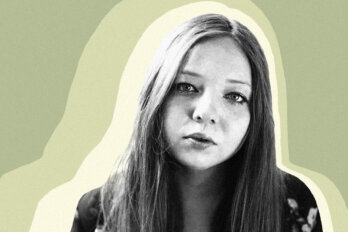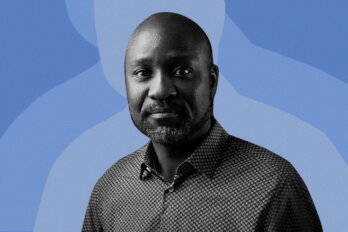One of the biggest challenges in journalism today is the need to confirm and defend what a fact is. If you’re a regular reader of The Walrus, you probably know we fact-check to a very high standard. For the past year, our current and former heads of research—or fact-checkers-in-chief—Allison Baker and Viviane Fairbank, developed a fact-checking guide funded by the Michener–L. Richard O’Hagan Fellowship for Journalism Education. The guide is based on The Walrus’s own verification methods, which Fairbank designed and formalized, and incorporates consultations with a wide range of journalists, researchers, and other experts. What Baker and Fairbank have come up with is both a fact-checking primer and a tool for navigating ethical issues in journalism: from stories that involve stark power dynamics to best practices for reporting on sexual assault. Their free guide was presented at a three-day conference at Carleton University in October and is available at thetijproject.ca.
Fake news has been in the air for so long now that I worry we overemphasize the risk it poses while glossing over other imminent dangers to journalism, like the dwindling number of professional media outlets and shrinking revenue streams. But we still see the real-world consequences of mis- and disinformation, whether it’s in Russian interference in the recent US midterm elections, the spreading of online conspiracy theories by Alberta premier Danielle Smith, or policy changes at Twitter that have relaxed content moderation standards and amplified discriminatory speech.
This past fall, I attended an advisory council meeting at the University of Toronto. During a discussion about democracy, I took the opportunity to ask Peter Loewen, director of the Munk School of Global Affairs and Public Policy, how he felt about the disinformation climate. With the proposed regulation of big tech companies by governments around the world, and what some see as the declining influence of platforms like Facebook and Twitter, is there light at the end of the tunnel?
His answer surprised me. The professional media and social media alike, he said, are “doing worse, not better” against the tide of online disinformation. Loewen did feel good about universities’ ability to fight fake news, at least on campus. “This is a small period of time in people’s lives when they trust authority and expertise and feel open to debate and to hearing others’ views,” he said. Loewen was referring to the hallways of higher learning—and his experience as a professor of political science—but his remarks speak to what I see as part of the larger project of journalism, which is to share new ideas and provide readers with context for discussing them. Those are values written into The Walrus’s educational mandate, which in turn directs our commitment to fact-checking.
Two stories in this issue directly address the situation we are in. In “The Secret of Pierre Poilievre’s Success,” pollster Frank Graves and journalist Stephen Maher analyze the data behind Pierre Poilievre’s rise to the leadership of the Conservative party. They found a high correlation between some of Poilievre’s supporters and distrust in government along with consumption of disinformation (for example, the belief that the World Economic Forum is controlling political leaders). This issue’s “Ask an Expert” features political scientist Rachel Bronson, president and CEO of the Bulletin of the Atomic Scientists. She reports that scientists are considering factoring mis- and disinformation into the Doomsday Clock, which was started in 1947 in response to the threat of nuclear war and is, metaphorically, a gauge of global stability.
The challenges posed to society by poorly reported and inaccurate news can’t be addressed overnight. One of the most daunting obstacles for professional journalists is the scale of the issue. In the time it takes to report and fact-check a feature, countless false stories can circulate. And yet I am heartened by the potential for our small but committed organization, which celebrates its twentieth anniversary in 2023, to contribute to a stronger media climate and to help train the next generation of journalists. As Baker and Fairbank write, in the introduction to their new guide, “journalism is a social activity, made possible by a community, including reporters, their editors, their publishers, their sources, their fact-checkers, their audience, and anyone else involved in the production of a story or affected by its content.” The fight for good journalism will be won one reader at a time.





